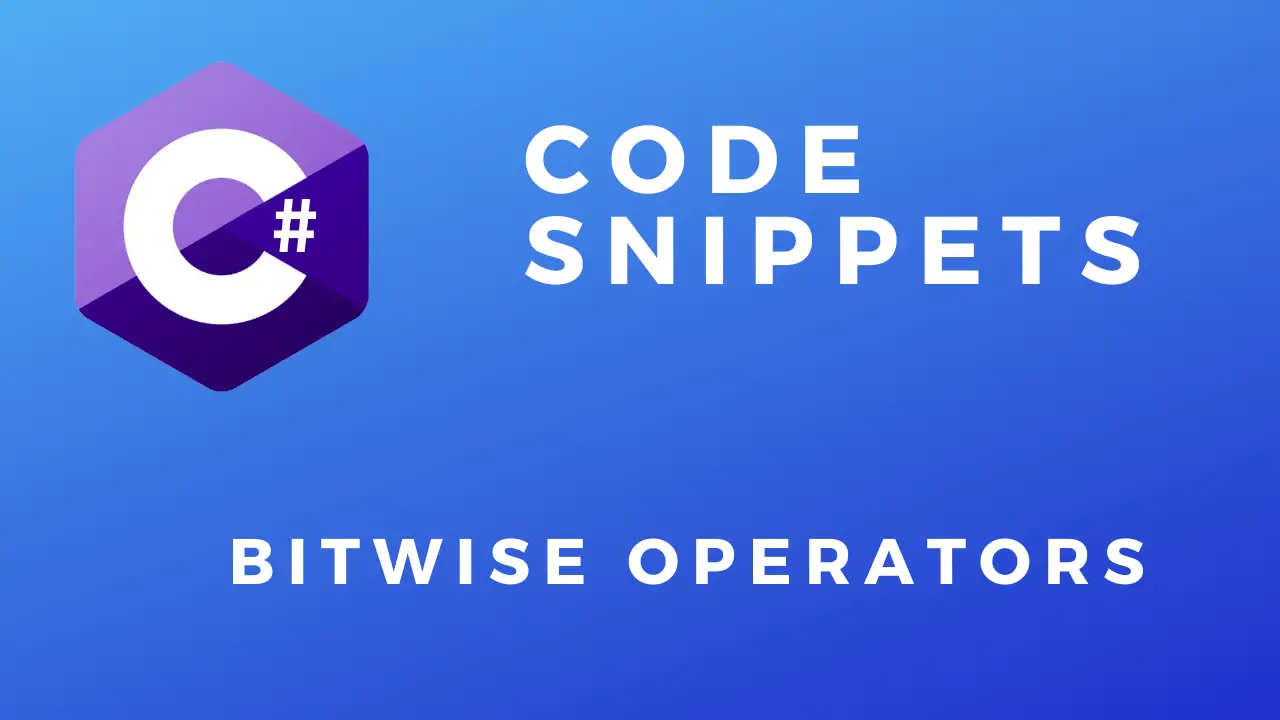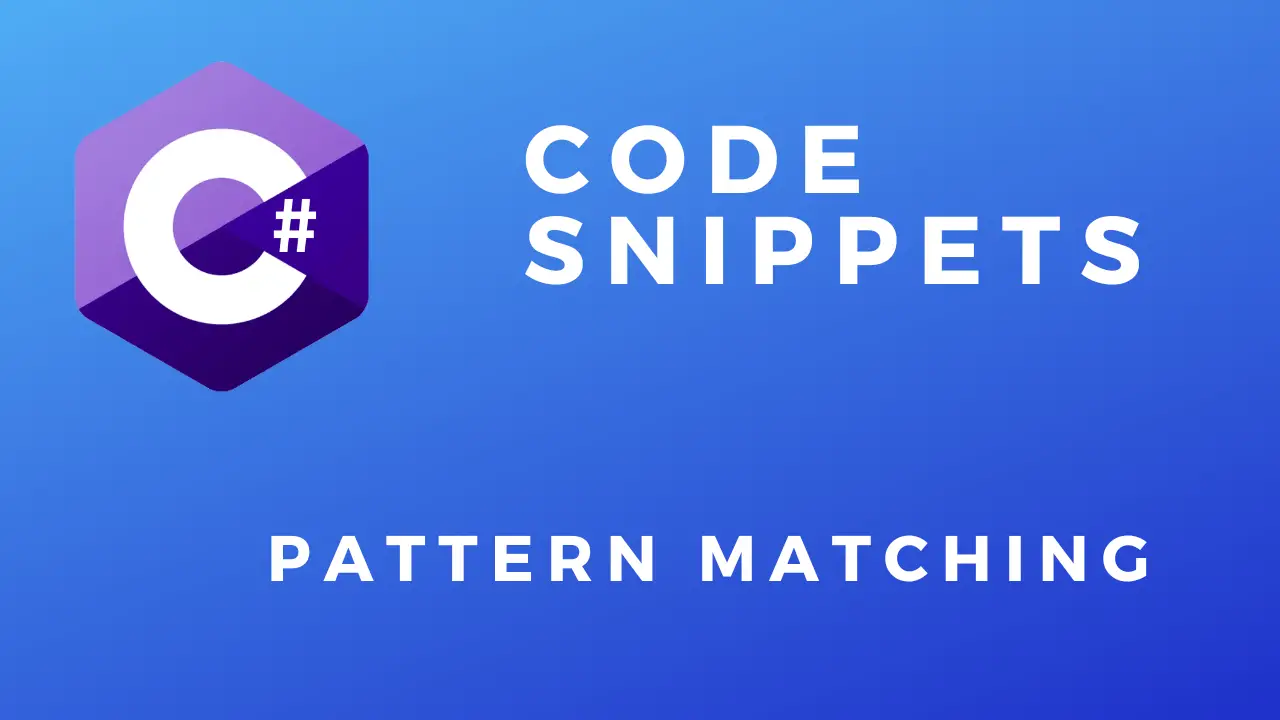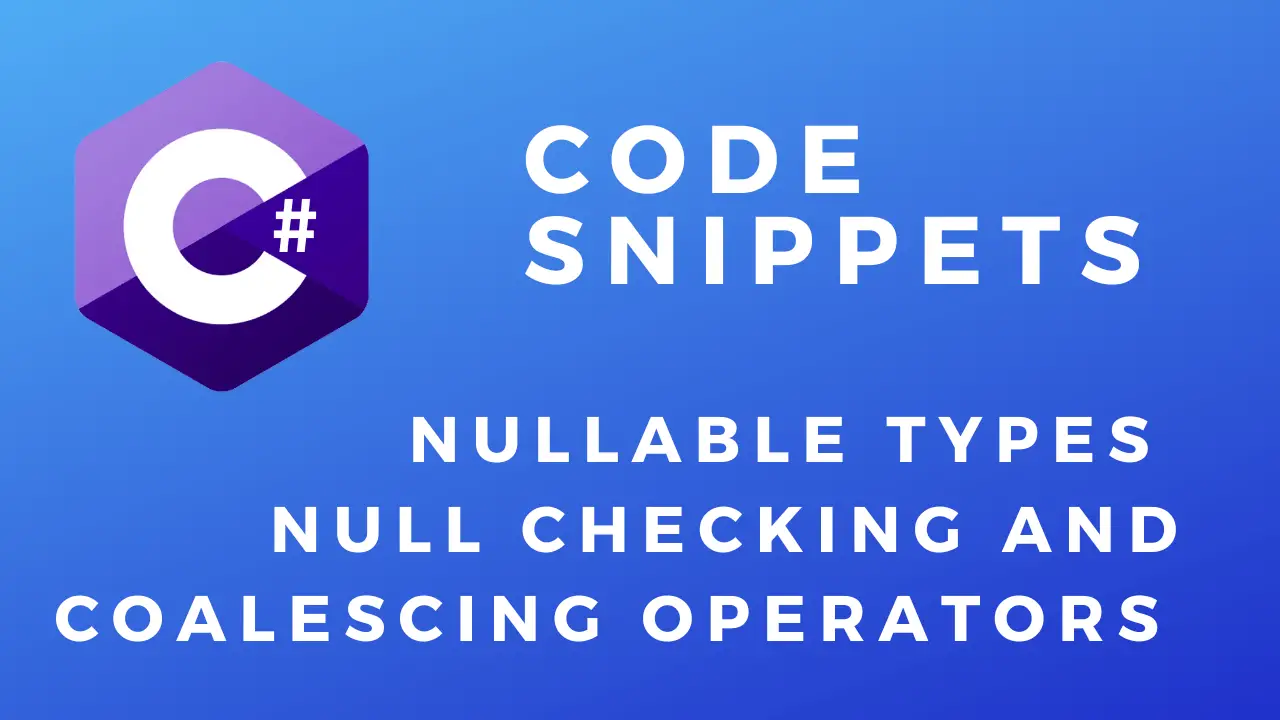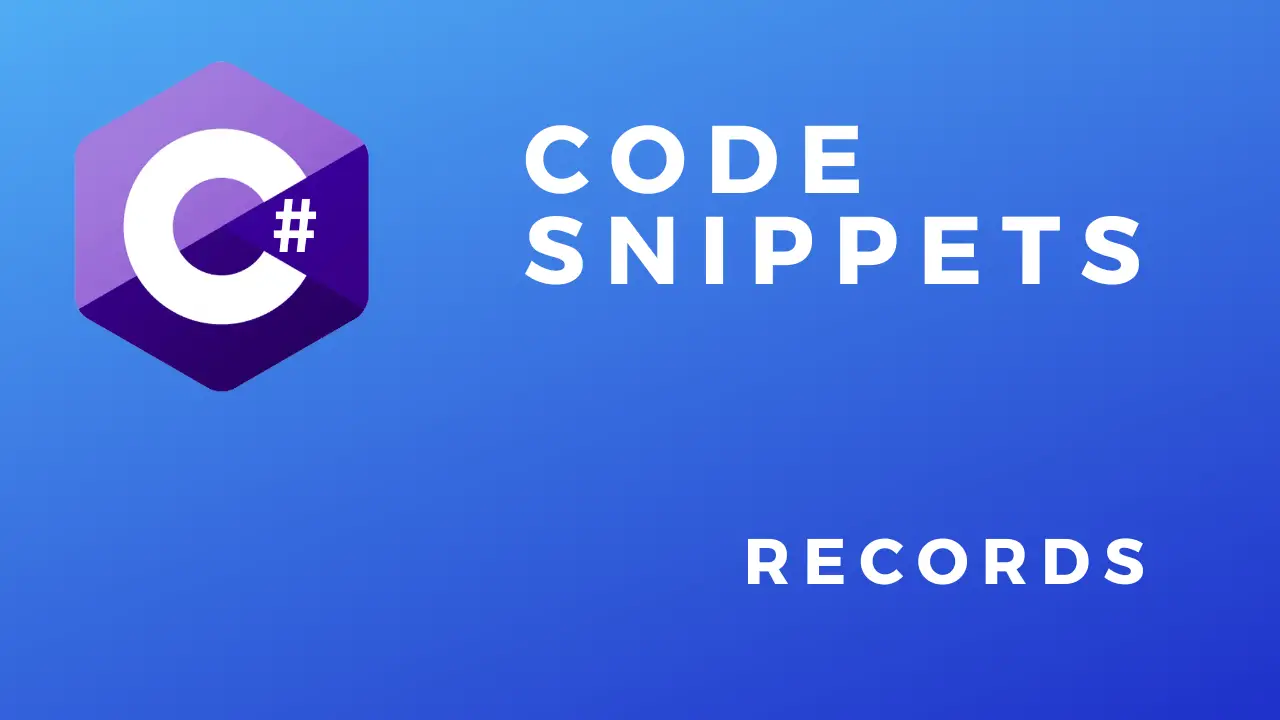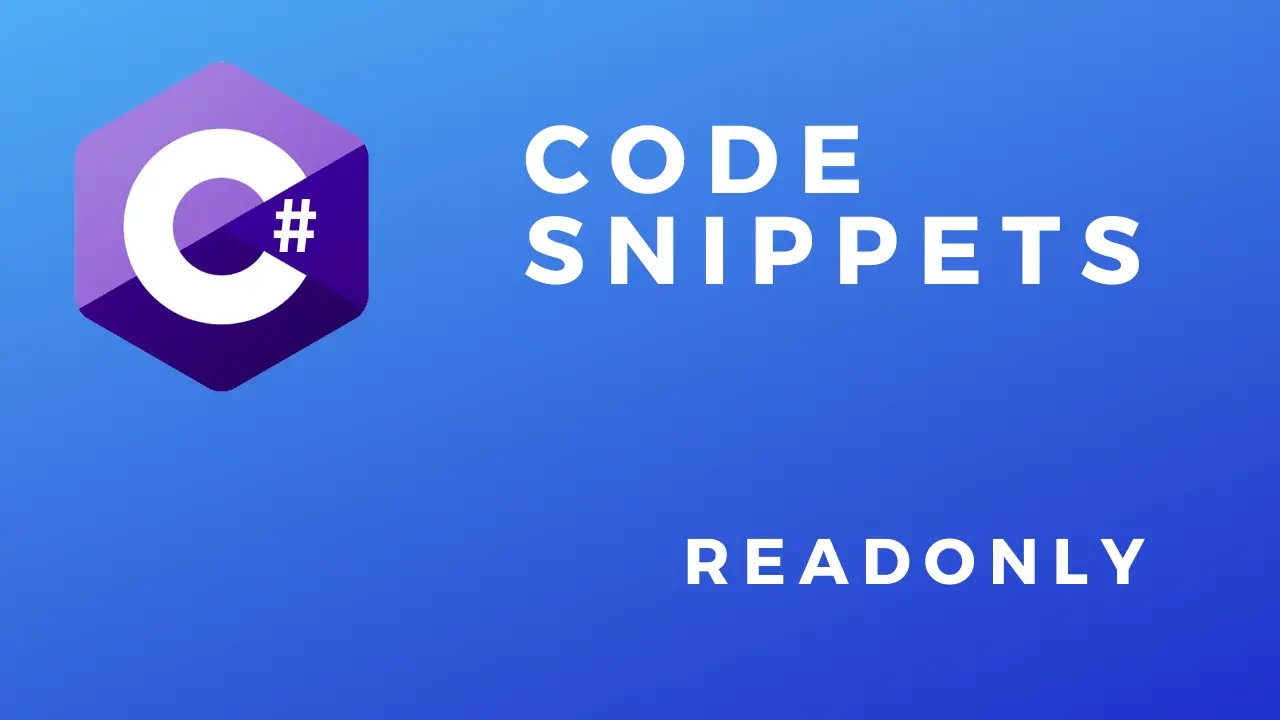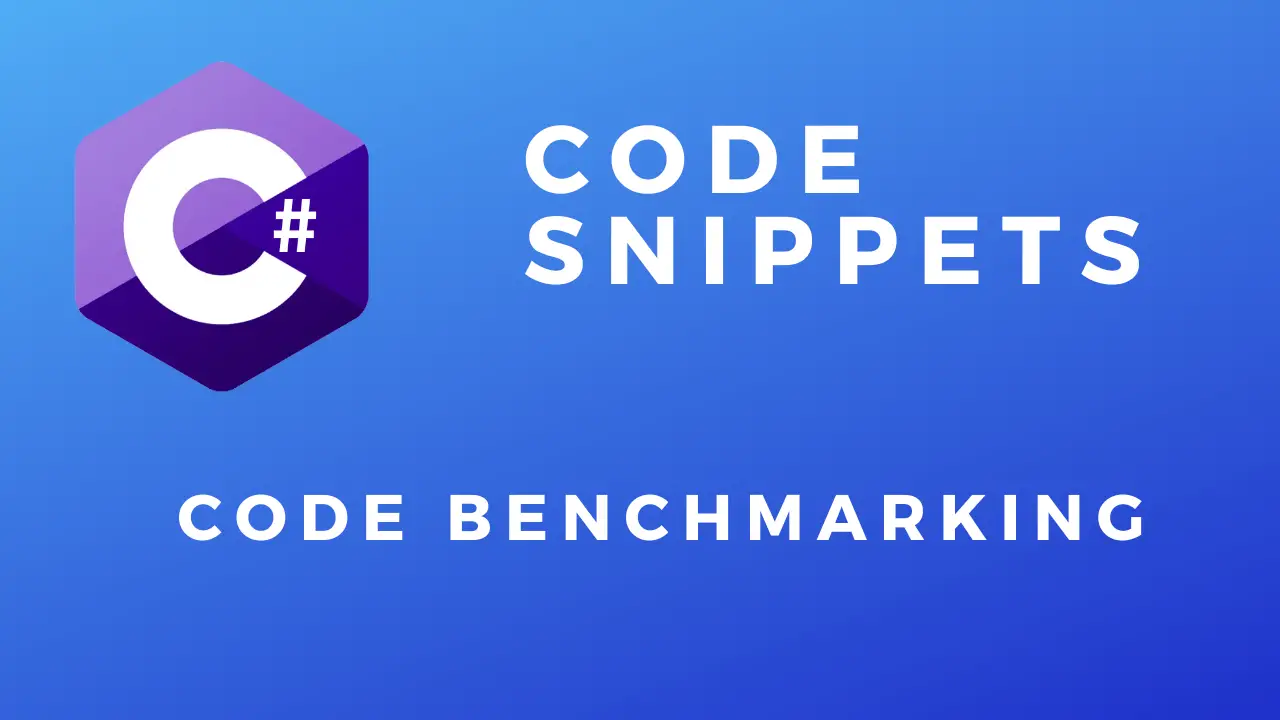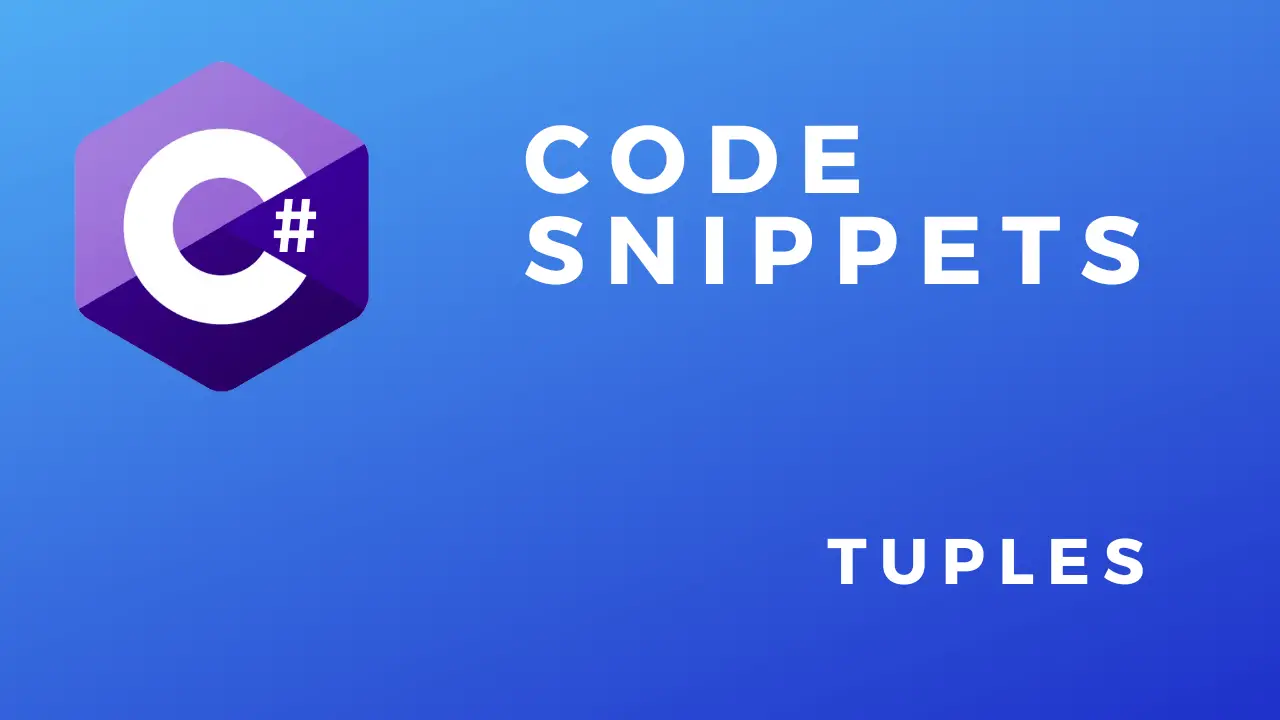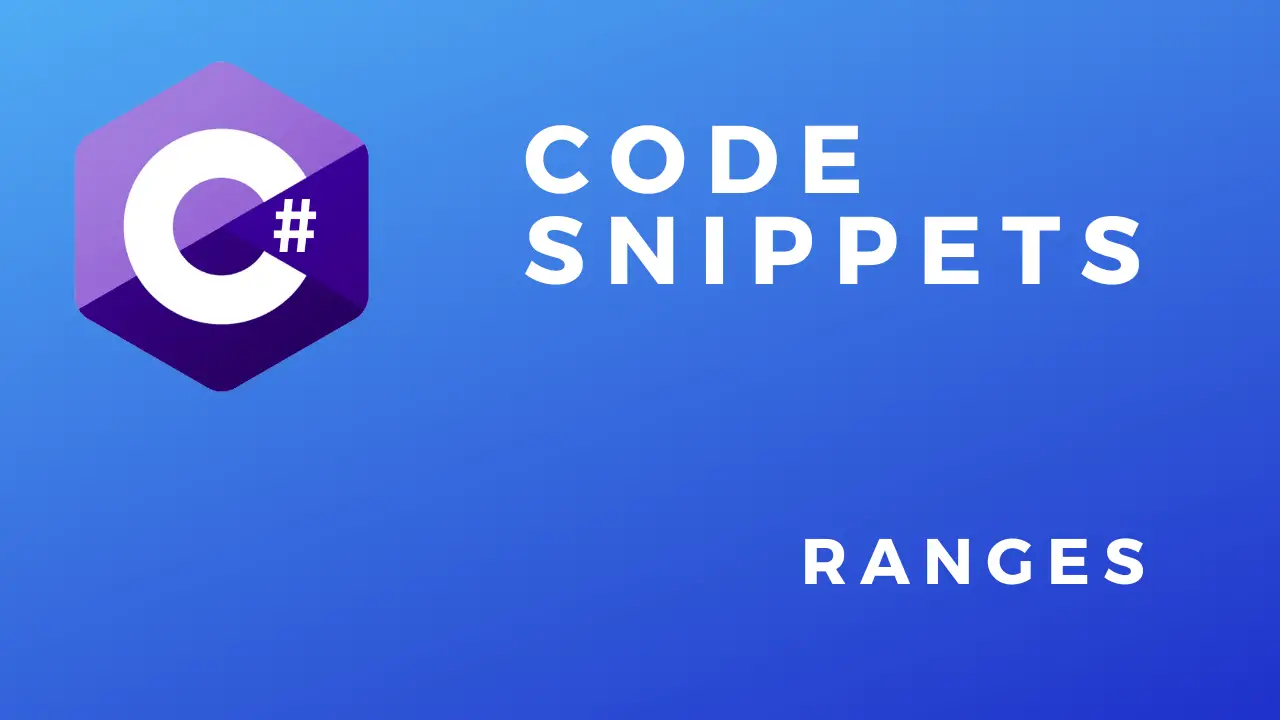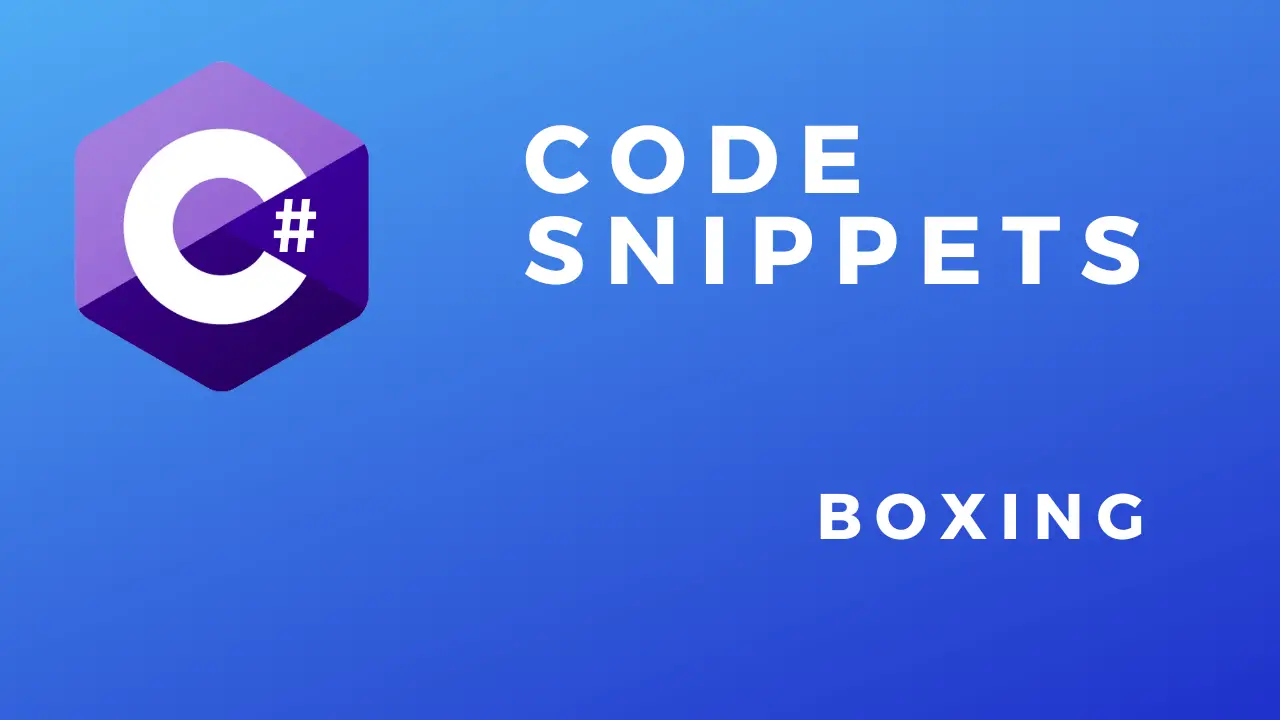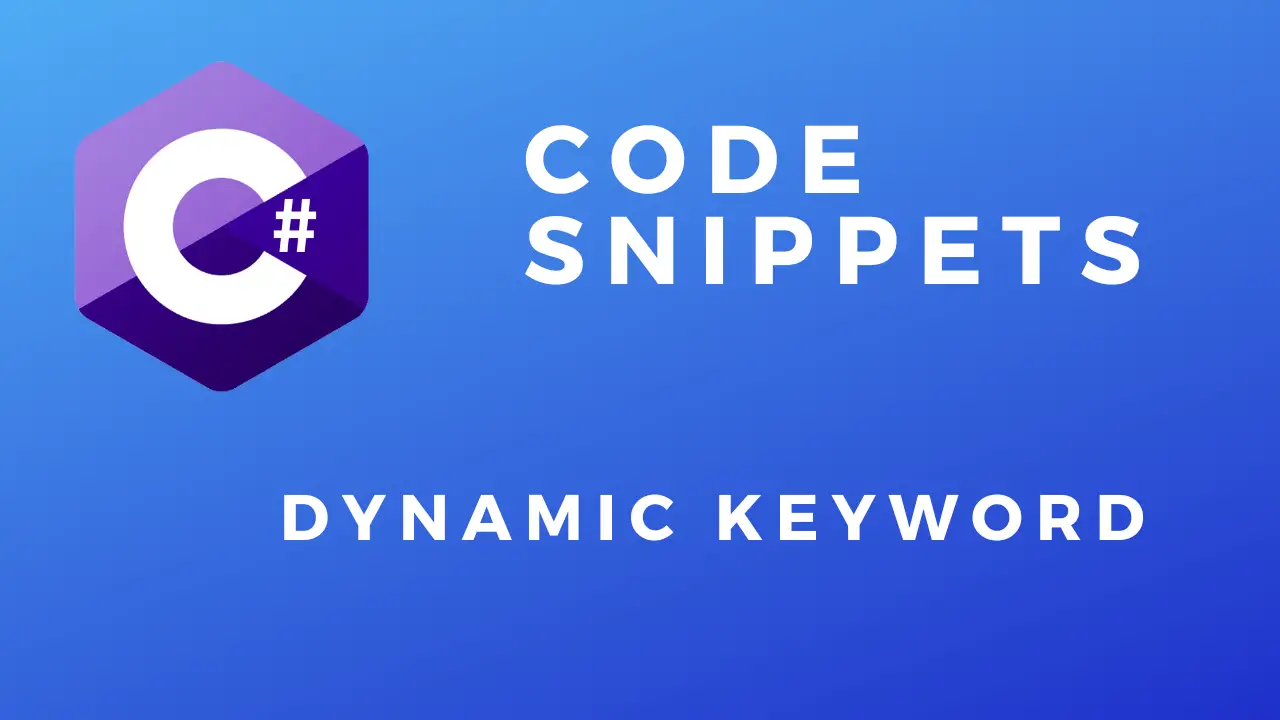C# Bitwise Operators
In this code snippet, we will take a look at bitwise operators in C#. Bitwise operators can be used to manipulate individual bits of a variable. These operations can be quite cryptic and hard to understand compared to regular code. So only use it when it makes sense(for example bit masking) and don’t prematurely optimize your code. In C# we can use enums in conjunction with the Flags attribute to do bitmasking. This gives us cleaner and more readable code.
